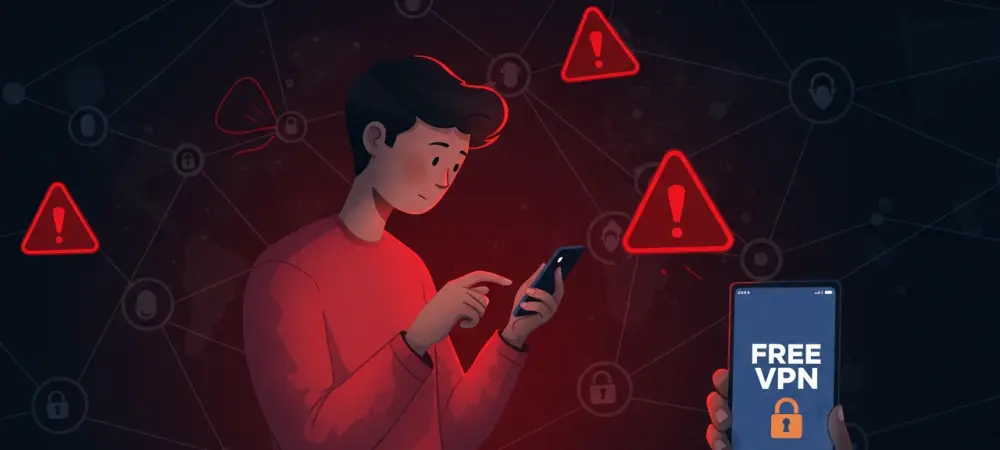The digital landscape is witnessing a dramatic shift as governments worldwide, including several U.S. states and the United Kingdom, impose stringent regulations on accessing pornographic content. These regulations mandate age verification protocols, requiring users to present government-issued identification, igniting significant controversy and a rush towards alternative online solutions like Virtual Private Networks (VPNs). Of particular concern are free VPN services, which attract users with the allure of no-cost privacy while potentially exposing them to profound security risks. This surge in VPN utilization not only raises substantial privacy issues but also questions the balance between regulatory intentions and user freedoms. The intersection of these factors demands careful examination, especially as free VPNs often operate in a murky space, potentially jeopardizing users’ personal data.
Impact of Government-Implemented Porn Bans
States across the U.S., most notably Texas, have adopted laws requiring age verification for online pornographic content, inspired by a landmark ruling from the U.S. Supreme Court. These regulations aim to shield minors from inappropriate content but have inadvertently prompted a swell in VPN downloads among adult users eager to circumvent such restrictions. Free VPNs, with their no-payment appeal, have seen a marked increase in adoption, albeit at a perilous cost to user privacy and data integrity. The demand surge is not isolated, as similar trends emerge in states like Florida and likely other regions contemplating similar legislation. The current digital climate thus features a significant uptick in VPN reliance, a phenomenon warranting scrutiny as privacy concerns intersect with technological solutions and legal measures.
The gravitation towards VPNs, particularly those offered for free, underscores a critical issue: the hidden dangers of these seemingly benign services. While users may temporarily evade age verification barriers, the deeper problem lies in how free VPNs handle users’ data. An alarming number of these services transit internet traffic through servers housed in countries such as China. This scenario presents substantial data interception risks, marking a new battleground in digital privacy. Reports from institutions like the Tech Transparency Project highlight the troubling prospect of millions of Americans unwittingly having their data routed through entities beyond U.S. jurisdiction, complicating legal and ethical dimensions of cybersecurity. This landscape poses significant challenges to users who must navigate between restrictive regulations and vulnerable technological choices.
The Hidden Threats of Free VPNs
The allure of free VPN services masks serious potential pitfalls. In exchange for bypassing government-mandated age verification processes, users expose themselves to data privacy compromises. Free VPN providers may not operate transparently, potentially misusing personal data or failing to secure user information adequately. These services often direct traffic through unreliable servers located in regions with lax data protection laws, such as China. Consequently, the private data of countless individuals risks being captured for unauthorized purposes, posing a significant threat in an increasingly interconnected and digitally reliant world. As the demand for VPNs continues to increase, the emergence of illegitimate VPN operators peddling false security assurances further aggravates the problem.
Additionally, as more users flock to free VPNs seeking anonymity, the risk of encountering scams escalates. Deceptive VPN services promote themselves with promises of enhanced privacy while engaging in dubious behaviors such as data mining or installing malicious software. Users seeking legal workarounds to access content legally considered a complex gray area may inadvertently expose themselves to cybersecurity threats. The possibilities of identity theft, data mining, and unauthorized surveillance are part and parcel of using inadequately vetted digital tools. Savvy internet users must thus prioritize security, recognizing free may often entail a hidden price. Proactive caution, guided by expert advice, is advised to mitigate these pervasive risks.
Navigating the Balance Between Privacy and Regulation
The mounting restrictions on digital content exemplify a broader trend of increased government control over internet usage. These measures advocate for child protection, a noble pursuit, yet inadvertently impede adult access to content legally permissible under constitutional frameworks like the U.S. First Amendment. Groups such as the American Civil Liberties Union critique such measures as intrusions into personal freedoms, illustrating the friction between governance and personal autonomy. The situation reveals a nuanced dichotomy: while regulations aim to uphold societal morals, they simultaneously raise alarms that core rights, like free speech, may be compromised. These dynamics necessitate a nuanced understanding of how technological, legal, and ethical realms intersect within modern society.
Amid ongoing debates, experts caution against impulsive choices in VPN selection, stressing the merits of paid services renowned for transparency and solid privacy commitments. Reputable platforms like the Google Play Store or Apple’s App Store serve as safer conduits for VPN downloads, offering protection against poorly controlled third-party software. Such practices safeguard against inadvertent installation of infringing or harmful applications. Keeping security functions like Play Protect active complements these considerations, further enhancing the user experience. Professionals advocate constant vigilance and informed decision-making to preserve a safe online presence while respecting regulatory compliance. This balanced approach exemplifies a comprehensive response to a complex dilemma.
Charting the Course for Responsible Digital Practices
In the U.S., several states, most prominently Texas, have enacted laws mandating age verification for accessing online pornographic content. This move, inspired by a U.S. Supreme Court ruling, seeks to protect minors from exposure to adult materials. However, the laws have also led to a rise in VPN downloads as adults attempt to bypass these restrictions. Free VPNs, popular due to their no-cost appeal, have seen increased use, but they pose significant risks to user data privacy. This trend is not confined to Texas; states like Florida and others considering similar legislation are experiencing the same surge in VPN usage. This increased reliance on VPNs, especially free options, highlights concerns about privacy and data security. Many free VPNs route user traffic through countries like China, raising the possibility of data interception. Institutions like the Tech Transparency Project warn that millions of Americans might unknowingly have their data processed outside U.S. jurisdiction, complicating legal and ethical cybersecurity issues. Users face the dual challenge of managing restrictive laws while making informed choices about their online privacy.

